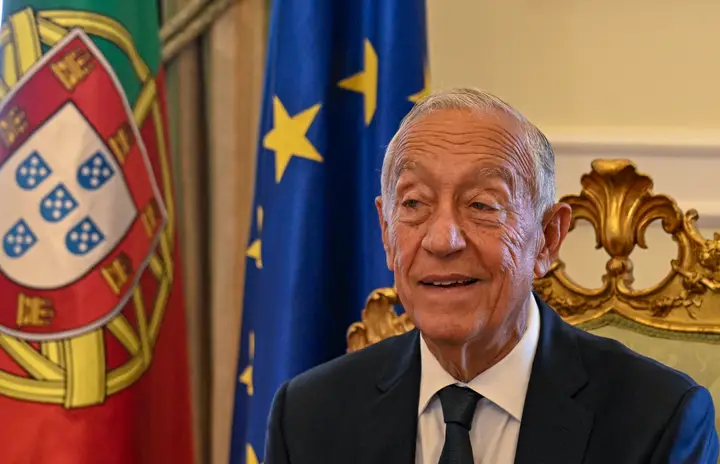
Lisbon, October 16, 2025 — Portuguese President Marcelo Rebelo de Sousa has officially promulgated the new Foreigners Law, reshaping the legal framework for how foreign citizens enter, stay, and reunite with family in Portugal. In his statement, Marcelo said the updated version now “minimally addresses the essential constitutional concerns” previously raised by both himself and the Constitutional Court.
The move ends months of political and legal tension between the presidency, the Constitutional Court, and the government, after earlier drafts were blocked for violating constitutional rights such as family unity and access to legal recourse.
A Long Legislative Battle
The revised law was approved in Parliament on September 30, 2025, with support from PSD, CDS-PP, Chega, IL, and JPP. It was opposed by PS, Livre, PCP, BE, and PAN.
This follows a turbulent path. In August, Marcelo had vetoed and returned an earlier version to Parliament after the Constitutional Court struck down five provisions as unconstitutional. Those rulings centered on limits to family reunification, excessive administrative delays, and unclear definitions that could lead to arbitrary decisions.
Marcelo later submitted sections of the law for preventive review by the Constitutional Court, particularly those dealing with family reunification, the processing deadlines for the Agency for Integration, Migration and Asylum (AIMA), and the right to appeal administrative denials.
According to the government, the reform aims to “align Portugal’s immigration system with the country’s capacity to integrate newcomers,” while focusing on “legal migration channels and attracting highly qualified professionals.”
Still, Marcelo warned that several parts of the law rely on undefined concepts — such as “specialized technical skills,” “sufficient means of subsistence,” and “public order gravity” — which could undermine legal certainty.
Key Changes in the New Law
1. Job-Seeking Visas Now Limited to Highly Qualified Workers
The law narrows eligibility for the job-search visa, restricting it to “highly qualified professionals.” The definition of who qualifies will be set later by ministerial order.
2. Family Reunification Rules Tightened
-
Spouses or partners who lived with the resident for at least 18 months before entering Portugal must now wait 15 months of legal residence before applying for family reunification.
-
Other family members — such as spouses without prior cohabitation, adult children, or parents — must wait two full years of legal residence before applying.
-
The interior minister may waive these time requirements in exceptional cases, considering family ties, integration level, dignity, and proportionality.
-
Refugees are excluded from this waiver system; their separate legal protections remain in place.
-
Minors, incapacitated persons, and adoptive parents are also exempt from the stricter residence requirements.
3. Stricter Deadlines and Judicial Remedies
-
Applications for family reunification must be decided within nine months, extendable once in exceptional cases with notification to the applicant.
-
If AIMA fails to decide in time, applicants may bring the case before the courts, which can order action or grant temporary protection.
-
Judges must consider AIMA’s workload and resources to ensure fair treatment of all applicants.
4. End of the Transitional Regime
The law sets a final expiration date for the transitional immigration rules created under Decree-Law No. 37-A/2024, declaring that its goals have already been met.
It also allows the government to define important regulatory details — such as what counts as “specialized qualification” — through ministerial decrees, a move critics say oversteps the legislature’s authority.
5. Refugee Protections Preserved
The law explicitly keeps the existing protections for refugees and asylum seekers, ensuring that none of the new restrictions apply to them.
Concerns and Criticism
Family Separation and Child Welfare
Experts and the president himself have warned that the longer waiting periods could leave families separated for three years or more, violating the principle of family unity and the best interests of the child.
Unequal Treatment Among Migrants
Critics argue that the law favors “elite migrants” — such as holders of investment or specialized visas — while making life harder for regular workers, deepening inequality among immigrants.
Legal Uncertainty
The use of vague legal terms like “sufficient means” and “public order gravity” may lead to inconsistent or arbitrary decisions by immigration officials.
Risk of Encouraging Irregular Migration
Some fear that tightening access to legal channels could push more people toward informal or irregular migration routes.
Why Marcelo Signed It Anyway
Despite these flaws, Marcelo Rebelo de Sousa chose to promulgate the law, saying it resolves the most serious constitutional issues identified by the Court and provides a workable framework for implementation. He urged the government to monitor the effects closely and make further adjustments if the law proves to harm family unity or Portugal’s integration goals.
--
Portugal’s new Foreigners Law tightens visa eligibility, extends family reunification timelines, and seeks to prioritize highly skilled immigration. Supporters say it restores order to the immigration system. Critics say it risks breaking families apart and deepening inequality.
The law now awaits regulation by the relevant ministries before coming fully into force in the coming months.


